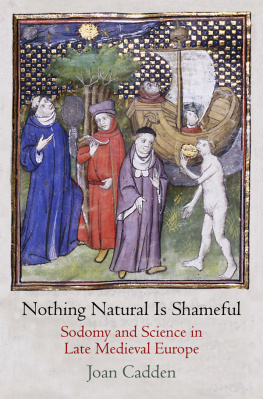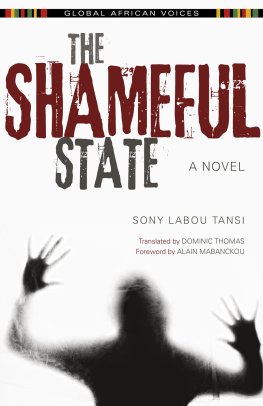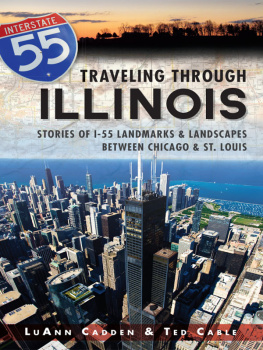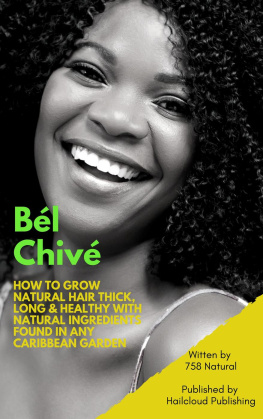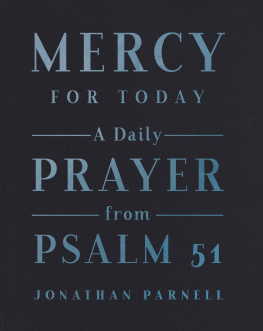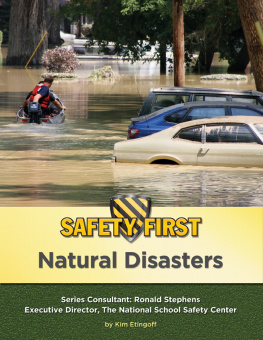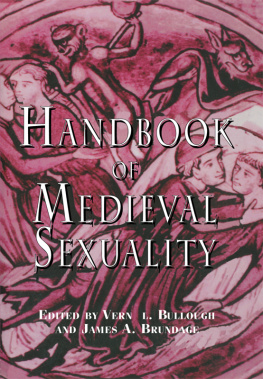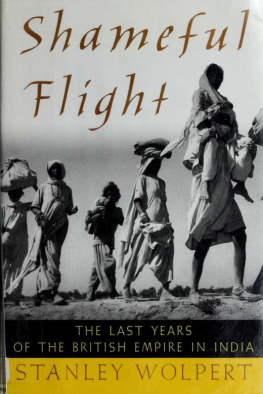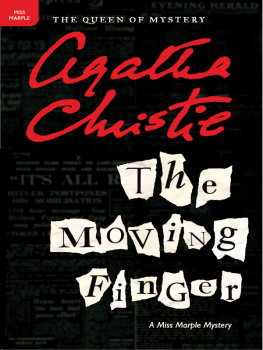Cadden - Nothing Natural Is Shameful
Here you can read online Cadden - Nothing Natural Is Shameful full text of the book (entire story) in english for free. Download pdf and epub, get meaning, cover and reviews about this ebook. publisher: University of Pennsylvania Press, genre: Science. Description of the work, (preface) as well as reviews are available. Best literature library LitArk.com created for fans of good reading and offers a wide selection of genres:
Romance novel
Science fiction
Adventure
Detective
Science
History
Home and family
Prose
Art
Politics
Computer
Non-fiction
Religion
Business
Children
Humor
Choose a favorite category and find really read worthwhile books. Enjoy immersion in the world of imagination, feel the emotions of the characters or learn something new for yourself, make an fascinating discovery.
Nothing Natural Is Shameful: summary, description and annotation
We offer to read an annotation, description, summary or preface (depends on what the author of the book "Nothing Natural Is Shameful" wrote himself). If you haven't found the necessary information about the book — write in the comments, we will try to find it.
Nothing Natural Is Shameful — read online for free the complete book (whole text) full work
Below is the text of the book, divided by pages. System saving the place of the last page read, allows you to conveniently read the book "Nothing Natural Is Shameful" online for free, without having to search again every time where you left off. Put a bookmark, and you can go to the page where you finished reading at any time.
Font size:
Interval:
Bookmark:

| AL | = Lacombe et al., Aristoteles Latinus |
| Arsenal | = Site Arsenal, Bibliothque Nationale de France [Paris] |
| BAV | = The Vatican, Biblioteca Apostolica Vaticana |
| BCM | = Biblioteca Comunale Maletestiana [Cesena] |
| BJ | = Biblioteka Jagielloska [Krakow] |
| BL | = London, British Library |
| BM | = Aristotle, Problemata, translated by Bartholomeus de Messina. All references are to Book IV, problema 26, unless otherwise indicated. |
| BNF | = Paris, Bibliothque Nationale de France |
| BN Marciana | = Venice, Biblioteca Nazionale di San Marco |
| Bodl. | = Oxford, Bodleian Library |
| CA | = Universittsbibliothek Erfurt/Gotha, Collectio Amploniana [Erfurt] |
| CLM | = Munich, Bayerische Staatsbibliothek, Codex Latinus Monacensis |
| CU | = Cambridge, Cambridge University Library |
| EC | = Evrart de Conty, Les Problemes d'Aristote. All references are to Book IV, problema 26, unless otherwise indicated. |
| Escorial | = San Lorenzo de El Escorial, Real Biblioteca del Monasterio de San Lorenzo |
| GT | = Aristotle, Problemata, translated by George of Trebizond. All references are to Book IV, problema 26, unless otherwise indicated. |
| JJ | = Pietro d'Abano, Expositio Problematum Aristotelis, redacted by Jean de Jandun. All references are to Book IV, problema 26, unless otherwise indicated. |
| KB | = Koninklijke Bibliotheek [The Hague] |
| NK | = Nrodn Knihovna esk Republiky [Prague] |
| PA | = Pietro d'Abano, Expositio Problematum Aristotelis. All references are to Book IV, problema 26, unless otherwise indicated. |
| Sorbonne | = Paris, Bibliothque Universitaire de la Sorbonne |
| StB | = Stadtbibliothek [Nuremberg] |
| TG | = Aristotle, Problemata, translated by Theodore Gaza. All references are to Book IV, problema 26, unless otherwise indicated. |
| UB | = Universittsbibliotek or Universiteitsbiblioteek [Leipzig, Ghent] |
| WB | = Walter Burley, Epitome Problematum Aristotelis. All references are to Book IV, problema 26, unless otherwise indicated. |

I do not know the names of many of the most important teachers who influenced this book. With their movements that asserted rights and declared liberation they transformed the social and political world that I inhabitednot only the marches I participated in but also the courses I taught. They provided what Aristotle would have called the motive and final causes of this project: the push, the impetus for it, and the end toward which it aspires. As medieval exponents of Aristotelian science were quick to point out, not everything fully realizes its goal. But what was an idea is now a book, and, however imperfect, it seeks both to embody and to honor the participants, past and present, in the changes that made it possible to write a history of sodomy and science in the Middle Ages.
This book also had what Aristotle would have called proximate motive causes. More than twenty years ago, Nancy Siraisi called my attention to Pietro d'Abano's commentary on the little studied Aristotelian work, the Problems. At the Morgan Library in New York City I sought out a copy of an early printed edition and found that a sixteenth-century reader had marked extensively the short chapter on the reasons some men enjoy the passive role in intercourse. Since then, the medieval history of that chapter has been a private obsession. But it has also been a collective project, dependent on the expertise, energies, insights, and generosity of many.
The list of manuscripts at the end of the book attests to its reliance on librarians at more than three dozen institutions who have sustained collections and enabled me to have access to them. In the course of my research, I was particularly fortunate to have the assistance of Urs Schoepflin of the Max-Planck Institut fr Wissenschaftsgeschichte in Berlin, Ludo Vandamme of the Openbare Bibliotheek Brugge, Geoffrey Waller and Jayne Ringrose of the University Library, Cambridge, Scott Mandelbrote of the Perne Library, Peterhouse, Cambridge, Paola Errani of the Biblioteca Malatestiana, Cesena, Susan Halpert of Harvard's Houghton Library, Kathrin Paasch of the Universitts- und Forschungsbibliothek Erfurt/Gotha, Martine De Reu of the Bibliotheek van de Rijksuniversiteit te Gent, Helmut Rohlfinger of the Niederschsische Staats- und Universittsbibliothek Gttingen, Anne Korteweg of the Koninklijke Bibliotheek in The Hague, Anna Sobaska of the Biblioteka Jagielloska, Krakow, Theresa Thom of the Gray's Inn Library, Consuelo Dutschke of Columbia University Library, Martin Kaufman of the Bodleian Library, Sally K. Speirs of Magdalen College Library, Oxford, Angela Williams and Ruth Ogden of St. John's College, Oxford, Milada Svobodov of the Nrodn Knihovna esk Republiky, Prague, and Ramn Gonzlvez Ruiz of the Archivo y Biblioteca Capitulares, Toledo. Special thanks are due to Gary Clark and Jason Newborn of the Interlibrary Loan department at the University of California, Davis, for years of patience, persistence, and resourcefulness.
Sorting through the material and the ideas generated by the research was likewise a collective undertaking. Research groups and seminars that contributed ideas and offered critiques include Abteilung II of the Max-Planck Institut fr Wissenschaftsgeschichte, headed by Lorraine Daston, the University of California Medieval Seminar at the Huntington Library, the Society for Medieval Feminist Scholarship, the Society for the Study of Homosexuality in the Middle Ages, members of the project on Gender and Science, Technology, and Medicine at the University of Michigan, the Problemata working group centered at the Katholieke Universiteit Leuven under the leadership of Michle Goyens and Pieter De Leemans, and, at the University of California, Davis, the Cross Cultural Women's and Gender History Program and the Science and Technology Studies Program. Research Assistants at UCD, including Amy Lindgren, Michael Barbezat, and Patricia Turning lent their questions as well as their labor (from manuscript catalogue searches to paleographical databases). Among them Shennan Hutton made special and sustained contributions. Critical assistance came at every stage and with every aspect of the project from the seminar/support group known as the Ladies Who Lunch. The U.S. National Science Foundation under Grant No. 0115556, the Max-Planck Institut fr Wissenschaftsgeschichte, and the University of California, Davis, provided the material conditions that made the book possible.
In the process of writing the book, I incurred additional indebtedness to individuals as well as groups. It is hard to measure the degree to which I have been inspired and influenced by conversations with Wendy Cadden, Monica Green, Katharine Park, and Linda Williams. Specialized assistance with languages and texts, in the form of advice and exchanges, came from experts, including Caroline Boucher, Gregory Clark, Gijs Coucke, Noah Guynn, Everett Rowson, and David Traill. And once a manuscript had taken shape, I profited immeasurably from the great wisdom and frankness of colleagues and friends who read all or part of it. There is no adequate way to thank Beverly Bossler, Mark Jordan, Krystyna von Henneberg, Ruth Mazo Karras, Joseph Ziegler, and Curt Zimansky. When I had done my imperfect best to take advantage of their invaluable help, the team from the University of Pennsylvania Press, including Jerry Singerman, Caroline Winschel, Noreen O'ConnorAbel, and Otto Bohlmann, did all it could to turn the result into an actual book.
Font size:
Interval:
Bookmark:
Similar books «Nothing Natural Is Shameful»
Look at similar books to Nothing Natural Is Shameful. We have selected literature similar in name and meaning in the hope of providing readers with more options to find new, interesting, not yet read works.
Discussion, reviews of the book Nothing Natural Is Shameful and just readers' own opinions. Leave your comments, write what you think about the work, its meaning or the main characters. Specify what exactly you liked and what you didn't like, and why you think so.

